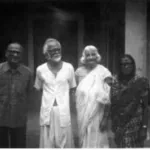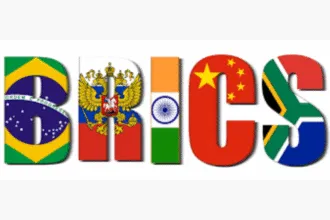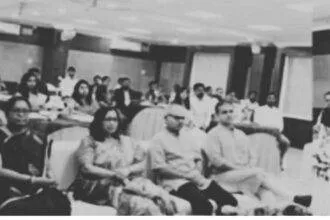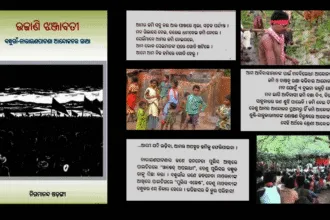In the recent times, the sacred city of Puri in Odisha has drawn attention not only for its world-famous car festival, but also for the visible entry of major corporate actors into its social landscape. India’s leading corporate entities: the Adani Group and Reliance Industries have begun offering large-scale public services such as free food distribution around the Jagannath Temple.
These acts have been appreciated by pilgrims and locals alike. In fact one of the pilgrims even said, “this isn’t just food. It’s like Lord Jagannath Himself is feeding us.” However, such corporate actions also provoke deeper questions about the evolving relationship between corporate power and public life. Are these activities truly acts of charity, or are they strategic moves to gain influence in urban governance? Scholars have critically examined such corporate philanthropy, questioning its true intentions and long-term impact on society, and also proposed democratic, community-driven alternatives.
Corporate Philanthropy: Korten’s Critique
David Korten, in When Corporations Rule the World (1995), argues that large corporate entities are guided more by the goal of maximizing shareholders wealth than the wellbeing of citizens. He stressed that the philanthropic actions are undertaken to gain legitimacy, secure access to natural resources, and get regulatory concessions. One can see such practices globally, including India.
For example, Tata Steel’s long-term investments in education, healthcare, and tribal welfare in resource-rich regions like Jharkhand and Odisha help in developing an aura of people friendly organization. Vedanta’s philanthropic initiatives near mining sites aim to build good relationship with local communities and governments. Reliance Foundation’s projects in Gujarat align strategically with Reliance’s industrial expansions. Similarly, Adani’s investments in schools, healthcare, and skill training around its Special Economic Zone and port in Mundra helped in advancing corporate interests.
Unlike Jamnagar (Reliance) or Mundra (Adani), where philanthropy directly aligns with business interests, Puri offers no direct justification for corporate philanthropic spending. Yet, corporate giants are increasingly engaging in food distribution, free shelters, and prasad (holy offering) services that are socially sensitive and capable of leaving a profound impact on the minds of pilgrims.
Their spending in Puri is aimed at projecting themselves as organizations with a human face, while the real, unstated objective may be to gain the goodwill of both the government and the public. Korten warns us not to be misled by surface-level acts of charity. Instead, he stressed people must investigate the underlying logic of corporate philanthropy.
From Plates to Power
In Puri, free food distribution has long been associated with temple practices, religious rituals, and community kitchens. When corporate actors enter this space with their resources, they get the opportunity to enter the social and political fabric of the community. Even temple administration may feel pressured to align with large donors. In such situations, philanthropy end up as a means to control of people by the corporate entities. This may in long run make citizens dependent on corporate philanthropy. Citizens’ rights are replaced by charity and in the process, individuals may find it very difficult to question the powerful corporate entities. In Puri, the long queues of pilgrims receiving meals may look like acts of kindness, but they also signal a shift in public service, from community care to corporate branding. Such shifts, if not addressed right from the beginning, may slowly erode the democratic institutions.
The Commons as an Alternative to Corporate
While Korten offers a critique, Elinor Ostrom, the Nobel laureate, provides a constructive alternative. Her theory of commons, demonstrates that communities can manage shared resources effectively when given the right tools and autonomy. Let local community, not corporates, manage the commons. Why do we need a large corporate entity to engage in food distribution in Puri? Who gave them this mandate: the common people, or the people in power?”
Ostrom’s principles can be applied to Puri too. Community-based food distribution could be organized through local collectives, temple committees, and neighborhood associations. Resources could be pooled through small donations, surplus food sharing, or temple offerings. Such a model would not only ensure food security but also strengthen community bonds and local leadership.
One should remember, collective community feeding is an act of providing care, not an exercise of corporate branding. Moreover, such a system helps in preserving local dishes and culture rather than becoming a standardized, outsourced corporate service. In Puri, this would also mean honoring the traditions of temple food, involving local cooks, and integrating religious values with community needs.
Instead, over the past month, Puri has been flooded with hoardings, banners, vehicles, and loud public announcements aggressively promoting the names and faces of two of the country’s most powerful corporate giants, turning public spaces into platforms for corporate branding.
Challenges and Responses
Commons-based models face challenges such as resource mobilization difficulties and risks of conflict or mismanagement, especially in marginalized communities. But these can be overcome through innovation, local government involvement, and community participation. Corporations may also be invited to contribute to the process along with others, but not control these initiatives.
Let democracy and community service prevail over corporate agendas. Let public spaces in Puri be adorned with the sacred images of Chakadola (Lord Jagannath), not the calculated faces of corporate tycoons.
The Road Ahead
The growing involvement of corporations like Adani and Ambani in food distribution in Puri raises critical questions about the future of civic life, religious autonomy, and democratic governance. What is at stake in Puri is more than just a meal. It is a question of who will govern the deities and denizens?
Will the control move away from the elected public representatives to the hands of unelected but powerful corporate houses? It depends on how the people of Puri, the devotees of Jagannath, and citizens of the nation come together to protect democracy and dignity against growing dependence on corporate entities. True civic strength lies in empowering communities the Gandhi‑way—through service, solidarity, and unconditional care. We can’t expect corporate entities to provide such unconditional care.
The responsibility for feeding pilgrims in Puri must not be surrendered to corporate hands. The Government of Odisha, the Temple Administration, local colleges, and civil society must urgently step in to reclaim this sacred duty. Free food distribution around the Jagannath Temple should reflect the spirit of selfless service, not operate as a corporate branding exercise.
Let the people of Puri safeguard this sacred city and never allow any corporate entity to control its life and culture.
DV Ramana
An ordinary citizen of India
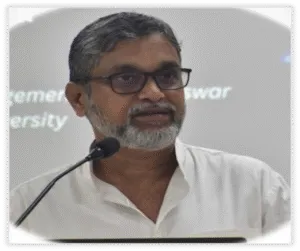
Professor, Xavier Institute of Management, XIM University, Bhubaneswar
Comments
0 comments



